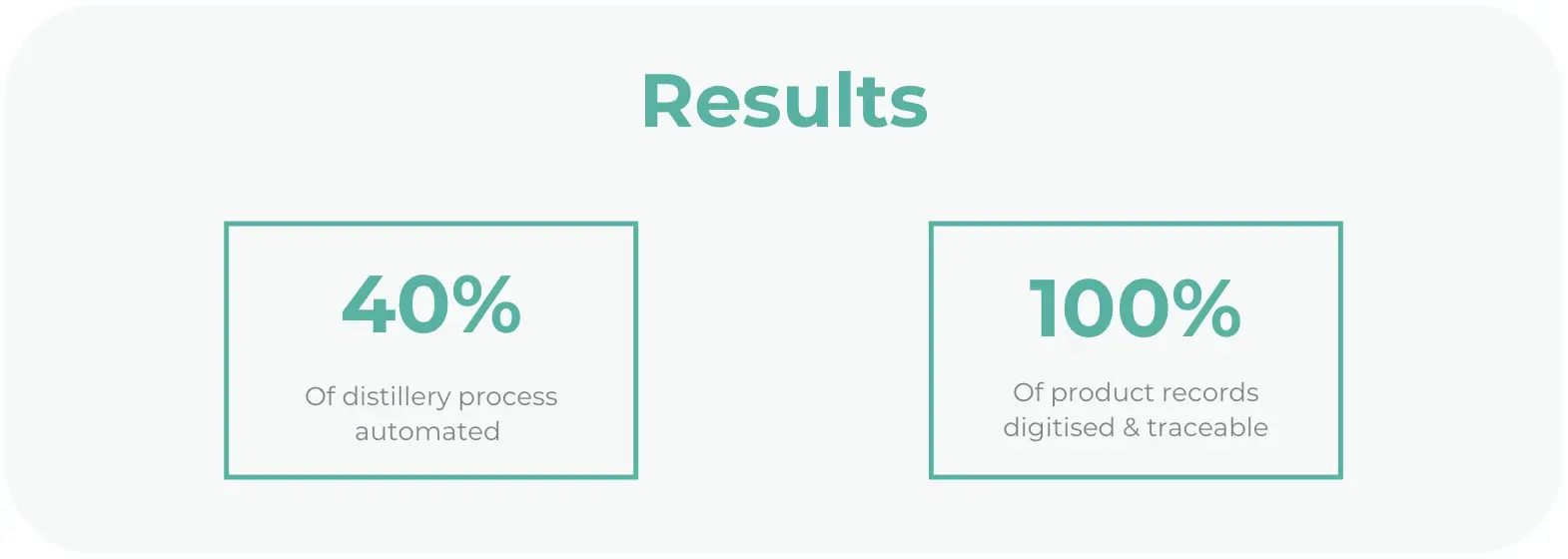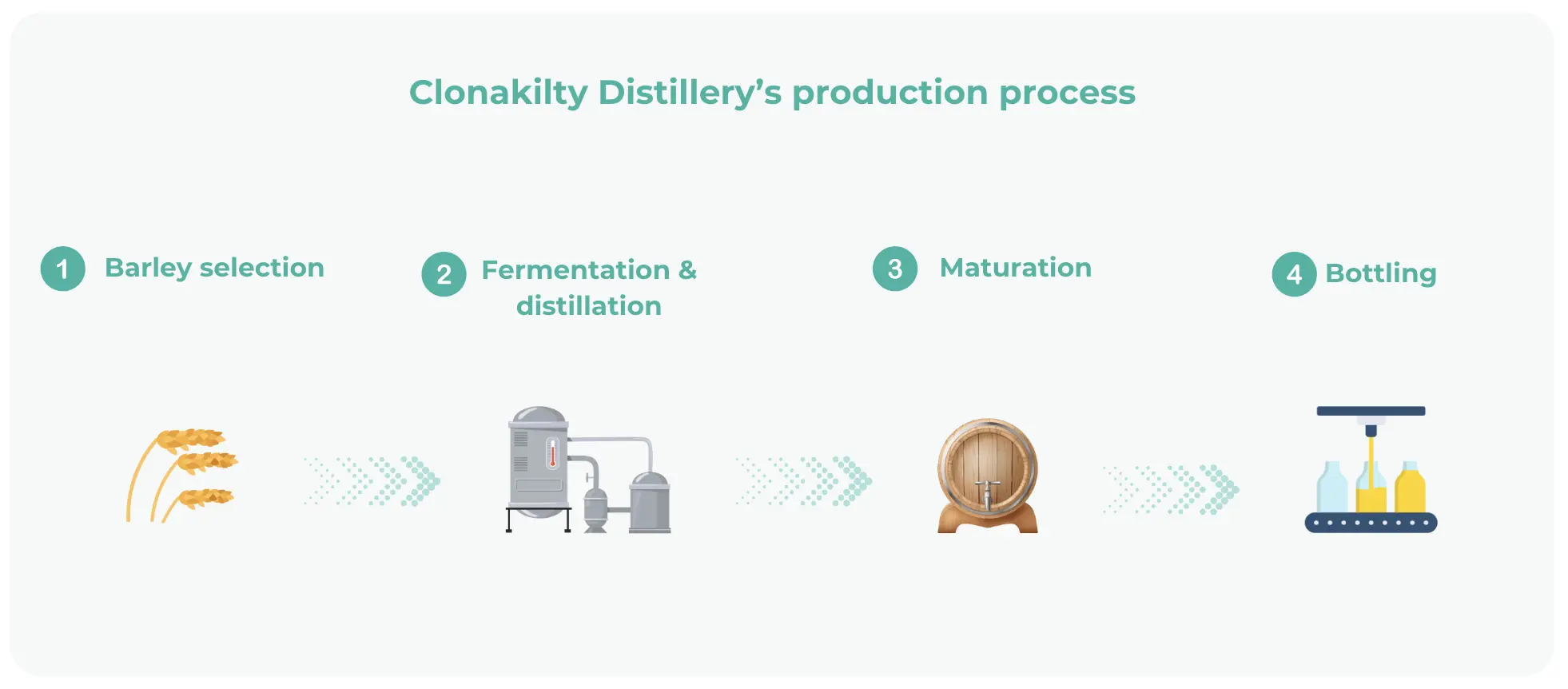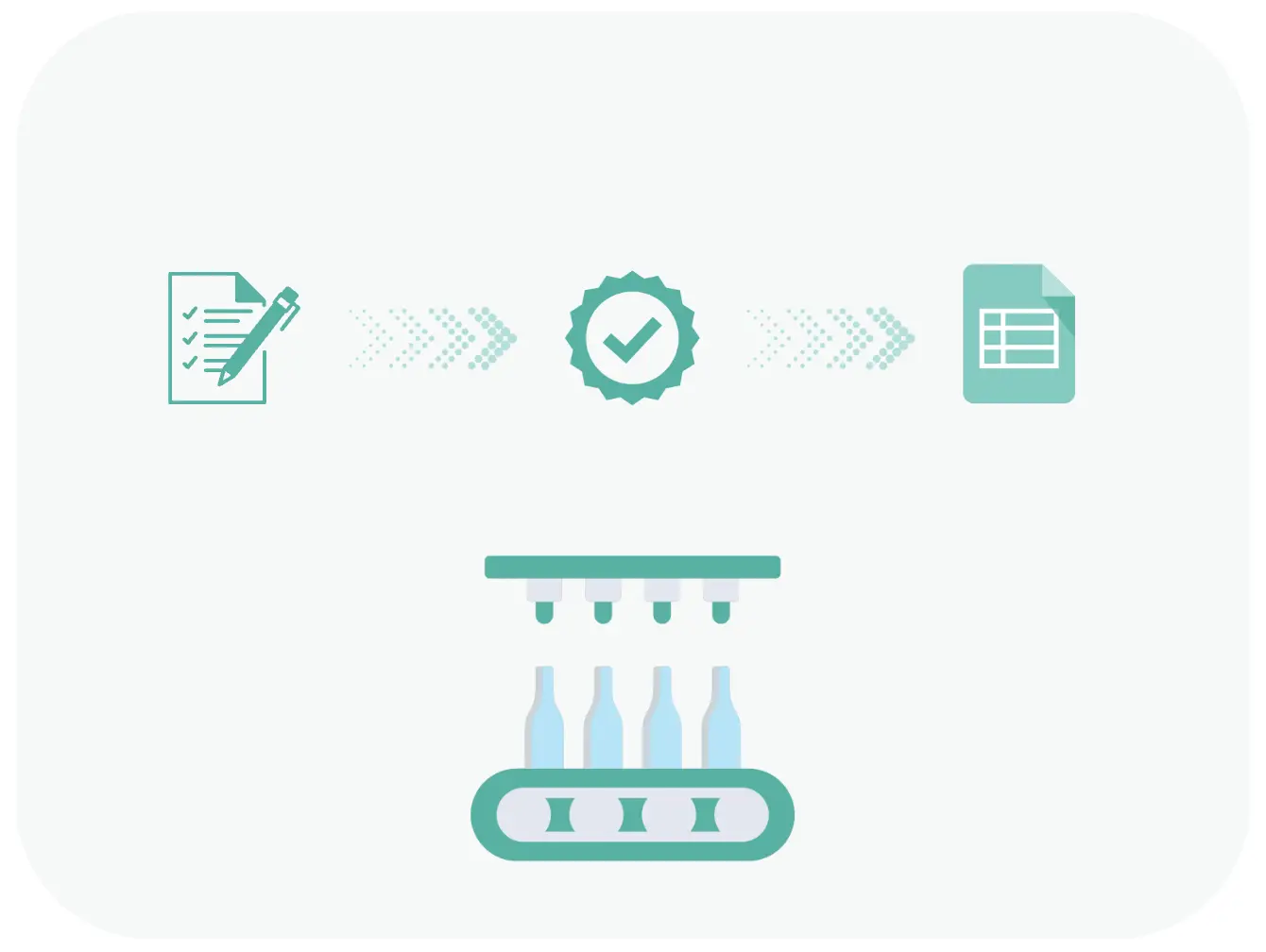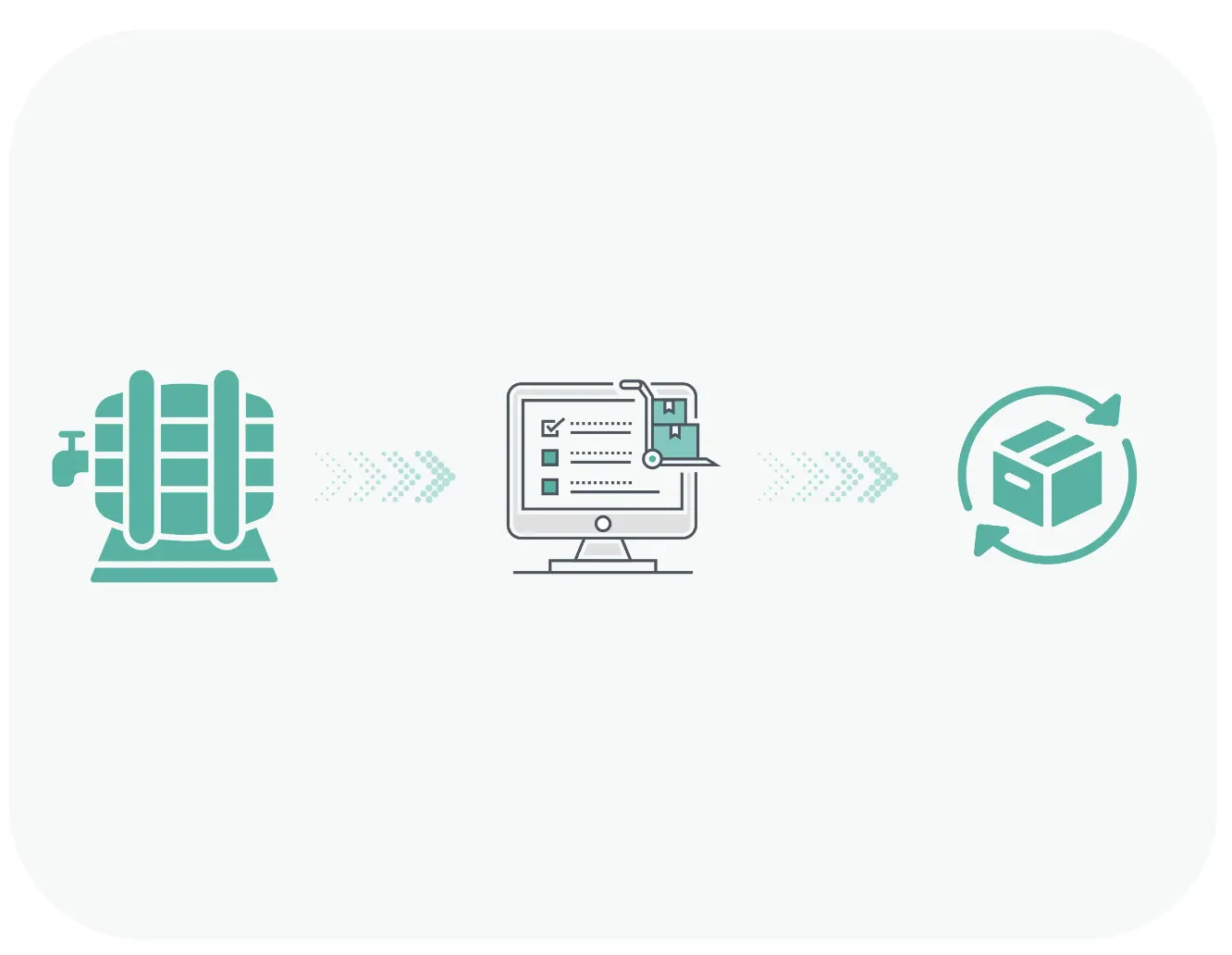Clonakilty Distillery is a family-owned operation based on the scenic coast of Ireland. Founded in 2019 by the Scully family, it uses its unique maritime climate to produce distinctive whiskies and gins. Quickly establishing a great reputation, Clonakilty's award-winning spirits are now enjoyed across Europe and America.
Sector: Whiskey & Gin Distillery
Industry: Food & Beverage
Location: Clonakilty, Co. Cork, Ireland
Company size: <50

Clonakilty Distillery's production process
1. Barley
The process begins with careful selection of high-quality barley, making sure that the grain meets the distillery's exact standards for flavour and purity.
2. Fermentation & distillation
The barley mash is fermented for over 100 hours, much longer than is typically done in the industry. This allows for the development of incredibly rich and natural flavours.
After fermentation, the liquid is triple-distilled using long-necked stills, refining the spirit to a smooth, high-quality whiskey. Following distillation, the spirit is then diluted with pure spring water sourced from Clonakilty's own deep well to achieve the precise concentration for maturation.
3. Maturation
The whiskey is aged in casks within Clonakilty's coastal warehouse. This kind of exposure to the Atlantic Ocean's maritime air uniquely influences the flavour, infusing the whiskey with subtle saline and briny notes.
4. Bottling
Post maturation, the whiskey is adjusted to bottling strength gradually over a minimum of two days to make sure that the flavours are well-integrated.
All the bottling is done on-site to maintain high quality control and maintain the authenticity of the whiskey from barrel all the way to bottle.
You can read in more detail about Clonakilty's process and story here.

Challenges
Clonakilty Distillery faced a series of operational challenges with its previous system that affected both their overall efficiency and traceability. The distillery relied heavily on paper forms and manual data entry. As a family-owned distillery they experienced difficulties managing their production processes across different sites and products. This resulted in inefficient record-keeping, making it tricky to trace specific batches or identify the contents of casks as staff had to sift through numerous forms. Often, data had to be transferred from paper to spreadsheets, processes like these are often prone to errors and inefficiencies.
Traceability difficulties
✘ Heavy reliance on paper-based forms
✘ Struggling to trace specific batches
✘ Higher chances of human error
Inefficient data management
✘ Inability to easily determine the contents of each cask
✘ Difficulty locating specific bottling details due to manual record searches
Templates
Use case 1: Electronic Batch Records (EBR)
With seal's EBR, distillers now use digital templates for step-by-step guidance, while real-time quality checks enable immediate corrections. Automated documentation ensures that batch data is properly stored, reducing waste, errors, and maintaining consistent product quality throughout production.
Digital templates: distillers use templates to run through each production step.
Quality checks integration: Real-time QA checks for immediate corrections.
Automated documentation: Digital storage of batch data, from the specific casks used to the final bottling.

Use case 2: Inventory Management System
Clonakilty Distillery's integrated bottling and packaging system streamlines production by linking each batch to specific packaging materials, ensuring accurate allocation. Automated stock deduction minimises errors and saves time, while real-time inventory tracking enables proactive management for optimal stock levels and replenishment.
Real-time inventory tracking: monitoring stock levels, from raw materials in casks to packaging supplies.
Automated material deduction: automatically adjusts packaging stock as products are bottled.
Integrated bottling & packaging: each product is linked in a cask to specific packaging materials

Use case 3: quality management system & document control
seal's QMS digitises records for immediate tracking, enables mobile data entry, and provides enhanced analytics for quality trends. This enables improved collaboration, time-saving automated workflows, and better quality control.
Audit readiness: easily auditable, accessible & organised documents.
Document management: Centralised digital platform for managing quality documents, procedures & compliance records.

Want to learn more?
Download the full case study PDF to read Clonakilty Distillery upgrade story.

